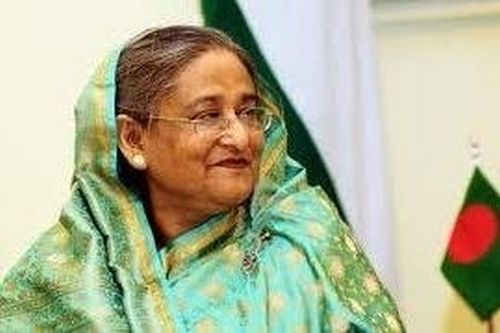Washington: Desperate to solve the deadly conundrum of COVID-19, the world is clamouring for fast answers and solutions from a research system not built for haste.
The ironic, and perhaps tragic, result: Scientific shortcuts have slowed understanding of the disease and delayed the ability to find out which drugs help, hurt or have no effect at all.
As deaths from the coronavirus relentlessly mounted into the hundreds of thousands, tens of thousands of doctors and patients rushed to use drugs before they could be proved safe or effective. A slew of low-quality studies clouded the picture even more.
“People had an epidemic in front of them and were not prepared to wait,” said Dr. Derek Angus, critical care chief at the University of Pittsburgh Medical Center. “We made traditional clinical research look so slow and cumbersome.” It wasn’t until mid-June — nearly six months in — when the first evidence came that a drug could improve survival. Researchers in the United Kingdom managed to enroll one of every six hospitalized COVID-19 patients into a large study that found a cheap steroid called dexamethasone helps and that a widely used malaria drug does not.
The study changed practice overnight, even though results had not been published or reviewed by other scientists.
In the United States, one smaller but rigorous study found a different drug can shorten recovery time for seriously ill patients, but many questions remain about its best use.
Doctors are still frantically reaching for anything else that might fight the many ways the virus can do harm, experimenting with medicines for stroke, heartburn, blood clots, gout, depression, inflammation, AIDS, hepatitis, cancer, arthritis and even stem cells and radiation.
“Everyone has been kind of grasping for anything that might work. And that’s not how you develop sound medical practice,” said Dr. Steven Nissen, a Cleveland Clinic researcher and frequent adviser to the U.S. Food and Drug Administration.
“Desperation is not a strategy. Good clinical trials represent a solid strategy.” Few definitive studies have been done in the U.S., with some undermined by people getting drugs on their own or lax methods from drug companies sponsoring the work.
And politics magnified the problem. Tens of thousands of people tried a malaria medicine after President Donald Trump relentlessly promoted it, saying, “What have you got to lose?”
Meanwhile, the nation’s top infectious disease expert, Dr. Anthony Fauci, warned “I like to prove things first.” For three months, weak studies polarized views of hydroxychloroquine until several more reliable ones found it ineffective.
“The problem with ‘gunslinger medicine,’ or medicine that is practiced where there is a hunch … is that it’s caused society as a whole to be late in learning things,” said Johns Hopkins University’s Dr. Otis Brawley. “We don’t have good evidence because we don’t appreciate and respect science.”
He noted that if studies had been conducted correctly in January and February, scientists would have known by March if many of these drugs worked.
Even researchers who value science are taking shortcuts and bending rules to try to get answers more rapidly. And journals are rushing to publish results, sometimes paying a price for their haste with retractions.
Research is still chaotic — more than 2,000 studies are testing COVID-19 treatments from azithromycin to zinc.
The volume might not be surprising in the face of a pandemic and a novel virus, but some experts say it is troubling that many studies are duplicative and lack the scientific rigor to result in clear answers.
“Everything about this feels very strange,” said Angus, who is leading an innovative study using artificial intelligence to help pick treatments. “It’s all being done on COVID time. It’s like this new weird clock we’re running on.” Here is a look at some of the major examples of “desperation science” underway.
To scientists, it was a recipe for disaster: In a medical crisis with no known treatment and a panicked population, an influential public figure pushes a drug with potentially serious side effects, citing testimonials and a quickly discredited report of its use in 20 patients.
Trump touted hydroxychloroquine in dozens of appearances starting in mid-March. The Food and Drug Administration allowed its emergency use even though studies had not shown it safe or effective for coronavirus patients, and the government acquired tens of millions of doses.
Trump first urged taking it with azithromycin, an antibiotic that, like hydroxychloroquine, can cause heart rhythm problems. After criticism, he doubled down on giving medical advice, urging “You should add zinc now … I want to throw that out there.”
In May, he said he was taking the drugs himself to prevent infection after an aide tested positive.
Many people followed his advice.
Dr. Rais Vohra, medical director of a California poison control center, told of a 52-year-old COVID-19 patient who developed an irregular heartbeat after three days on hydroxychloroquine – from the drug, not the virus.
“It seems like the cure was more dangerous than the effects of the disease,” Vohra said.
Studies suggested the drug wasn’t helping, but they were weak. And the most influential one, published in the journal Lancet, was retracted after major concerns arose about the data.







